Retro Replay Review
Gameplay
Denarius Avaricius Sextus delivers a classic text-parser adventure experience, inviting players to type commands to navigate the unfolding drama in ancient Pompeii. The parser is responsive and forgiving, recognizing a wide variety of synonyms so that commands like “examine statue” or “look at the marble bust” yield useful feedback. For newcomers, the built-in command menu offers a point-and-click alternative, speeding up navigation and reducing the frustration of trial-and-error input. Veteran adventurers will appreciate the flexibility of direct text entry, though they can switch seamlessly to menu navigation whenever they prefer.
Puzzle design strikes a balanced chord between logical deduction and environmental exploration. You’ll solve inventory-based challenges—like combining a leather strap with a broken cart wheel to escape a blocked alley—as well as multi-step riddles that draw on historical knowledge of Roman daily life. The clues are woven naturally into richly described locations: a merchant’s stall here, a crumbling fresco there. Hints are subtle but fair, and while some puzzles may slow down less patient players, each victory feels genuinely earned.
Traversal around the city of Pompeii unfolds at a measured pace. You explore temple courtyards, bustling markets, and narrow side streets, each area revealed through evocative prose rather than flashy visuals. Navigation commands like “go east” or “enter tavern” remain consistent throughout, minimizing guesswork. Backtracking is kept to a minimum by an in-game map feature, ensuring that exploration never devolves into tedious wandering.
In addition to the core escape objective, side goals and optional interactions add replay value. You might choose to help a panicked merchant gather his wares, or decipher a hidden message scrawled on a villa wall—choices that can slightly alter your route or the information you uncover. These branching opportunities encourage multiple playthroughs and deepen your connection to both character and setting.
Graphics
Though Denarius Avaricius Sextus is primarily text-driven, it compensates with artful design touches that heighten immersion. Surrounding the text window are stylized borders inspired by Roman mosaics, while occasional black-and-white illustrations depict landmark structures like the Amphitheater or the Forum. These simple line drawings, though modest by modern standards, effectively convey the grandeur and impending danger of Pompeii’s streets.
The user interface is clean and unobtrusive. Text is displayed in a readable serif font reminiscent of ancient manuscripts, and color accents—deep reds, earthen browns, and marble whites—evoke the period’s palette. Menu icons are tastefully done, resembling carved gemstone tokens that click satisfyingly when selected. The whole presentation feels artfully curated rather than utilitarian.
Sound effects are minimal but purposeful. You’ll hear the distant rumble of the earth or the crackle of fires as Vesuvius grows restless, accompanied by sparse ambient music that blends lyre strings with soft percussion. While not a full orchestral score, the audio cues punctuate key moments—like the tremor that foreshadows the final eruption—adding tension without overwhelming the text-based narrative.
The game’s minimalistic visual and audio approach underscores its text-first design ethos, letting your imagination fill in the vivid details of ancient Pompeii. This stripped-back presentation may feel unconventional to gamers accustomed to high-fidelity 3D worlds, but it proves surprisingly effective at conjuring atmosphere and a sense of place.
Story
Denarius Avaricius Sextus unfolds against the historic backdrop of Pompeii, 79 A.D. You assume the role of Avaricius—Avvy to his friends—a wealthy Roman citizen caught off guard by Vesuvius’s sudden volcanic fury. From the moment you awaken to tremors shaking your villa, the narrative propels you into a race for survival, blending historical events with personal stakes.
The plot is enriched by period-accurate details: political undercurrents in the Forum, whispered rumors about omens, and social hierarchies that shape how NPCs treat you. Avvy’s connections grant access to certain areas, but also force difficult moral choices. Will you secure a private chariot and abandon the servants, or risk courtesy by helping those in need? These decisions influence how the story unfolds, giving you a genuine sense of agency.
Dialogue is well-written, capturing the formalities and colloquialisms of the era without lapsing into heavy-handed exposition. Characters feel distinct—a stern senator, a compassionate temple priestess, a shifty merchant all offer unique perspectives on the city’s fate. Their interactions with Avvy create emotional anchors, making the impending doom of the eruption more poignant.
Pacing is expertly calibrated: moments of tense puzzle-solving and exploration alternate with character-driven interludes that deepen the narrative. As ash begins to fall and chaos spreads, the story’s crescendo becomes an immersive thriller that refuses to let up until the final choice—will Avvy escape by sea, through underground catacombs, or get trapped in a labyrinth of volcanic fissures?
Overall Experience
Denarius Avaricius Sextus recreates the golden age of text-parser adventures with a fresh historical twist. Its combination of rich prose, meaningful puzzles, and evocative presentation makes for a compelling journey through a doomed city. If you’ve ever longed to solve intricate riddles while living through one of history’s most famous disasters, this game delivers on both counts.
While the lack of fully rendered 3D environments may deter players accustomed to modern graphics, the title’s deliberate emphasis on storytelling and puzzle mechanics offers an alternative that feels both nostalgic and crisp. The optional command menu ensures accessibility for newcomers, while the robust parser keeps veteran adventurers engaged and challenged.
Replay value is significant, thanks to branching choices and hidden encounters that can alter your escape route and character relationships. Whether you aim for a swift breakout or a thorough exploration of Pompeii’s darkest corners, each playthrough can reveal new facets of Avvy’s world. The balanced difficulty and built-in hints make it approachable without sacrificing depth.
Overall, Denarius Avaricius Sextus stands out as a lovingly crafted homage to classic adventure games, enriched by historical authenticity and thoughtful design. It’s an experience that encourages both intellectual engagement and emotional investment—highly recommended for fans of narrative-driven puzzles and anyone intrigued by the drama of ancient Pompeii.
 Retro Replay Retro Replay gaming reviews, news, emulation, geek stuff and more!
Retro Replay Retro Replay gaming reviews, news, emulation, geek stuff and more!
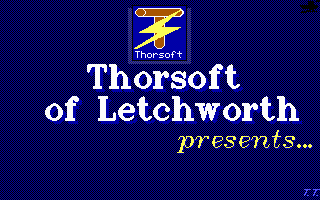
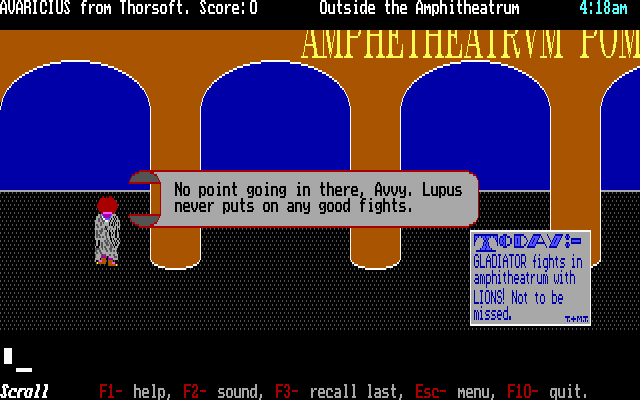

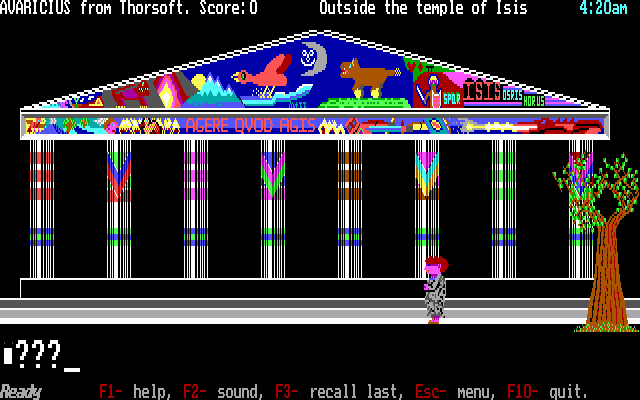
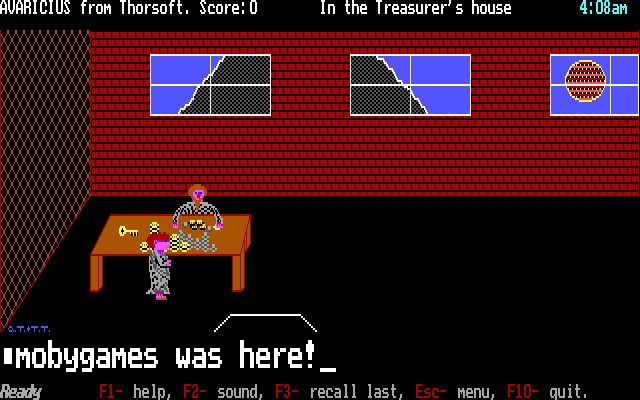
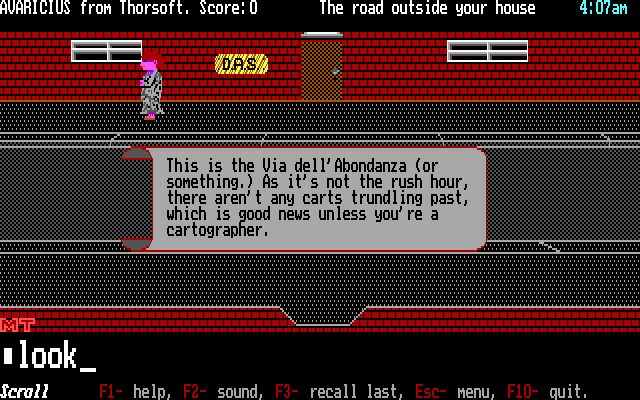



Reviews
There are no reviews yet.